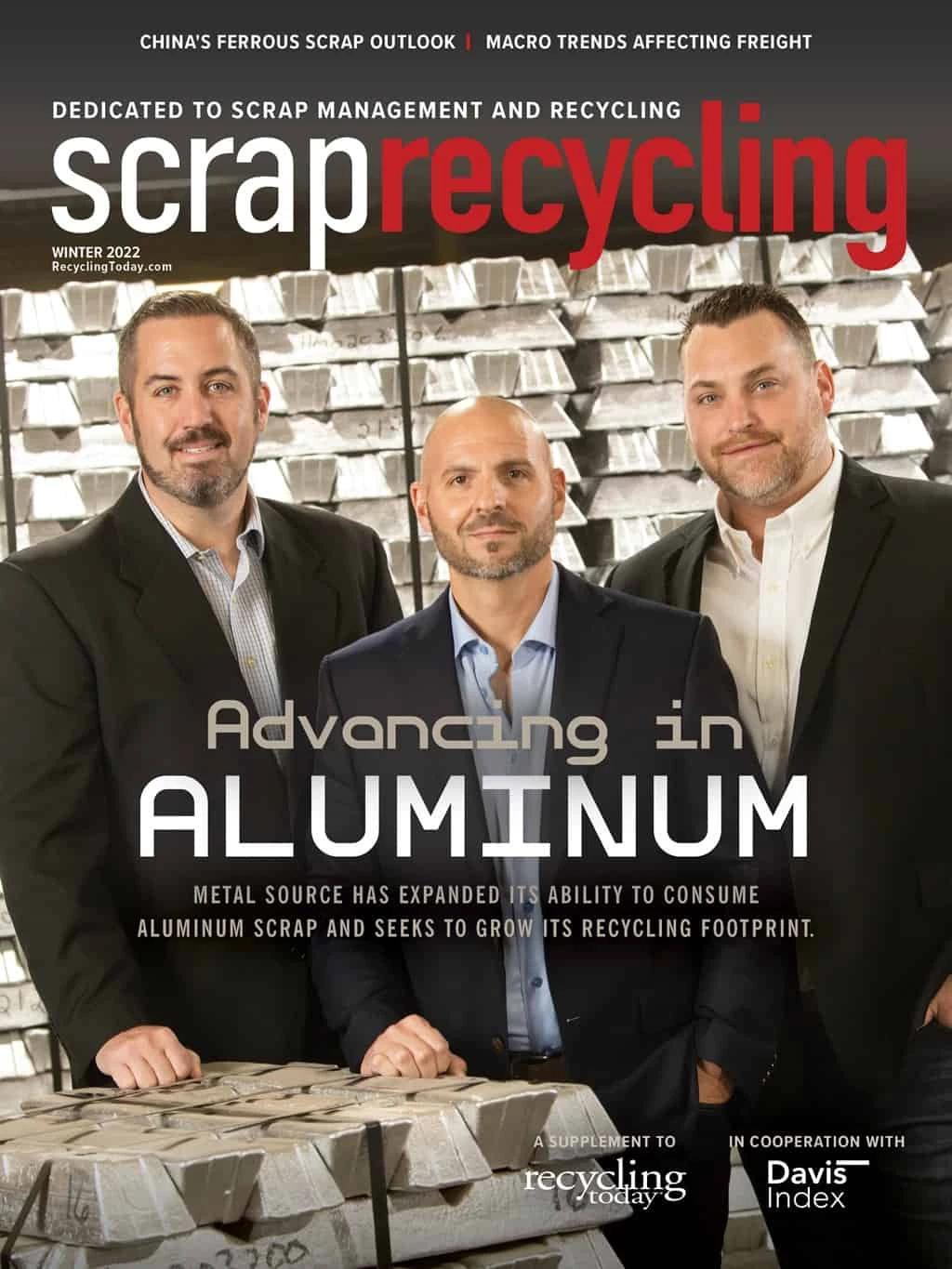
Zachary Mallin is a fourth-generation family business manager who currently serves as a vice president with Kansas City, Missouri-based Mallin Cos. The company operates several wire and cable processing lines, preparing copper and aluminum chops.
After studying business, finance and real estate in college, Mallin joined the family business in 2014. He subsequently has been involved in several different aspects of the company’s operations.
Mallin also quickly became involved in the Mid-America Chapter and the Young Executives Council of the Washington-based Institute of Scrap Recycling Industries. He also is carrying on his family’s tradition of committing time and energy to local charitable causes.
In late summer of last year, Recycling Today Senior Editor Brian Taylor had the opportunity to speak with Mallin as part of “The Scrap Show” podcast series. In the following excerpt from that interview, he offers his view on family business management techniques and some of the factors influencing the future of the wire processing sector.
Q: The Mallin family has been able to retain interest in the company across several generations, with you being a part of the fourth generation of the family business. Are there factors you can cite for that? What are the things that the company has done right to help keep succeeding generations interested in the business?
A: I think a lot of it is communication. All three of us [Zach; his father Jeffrey; and his grandfather Larry] are very open and also respectful of everyone’s opinion. We’re putting everything out on the table; no one’s doing anything without somebody else knowing about it. And I think that’s the key—keep the line of communication open. Then, everyone’s on the same page with the same mindset and same goals, and that way you can continue to move forward together.
Q: Do you tend to do that mostly informally, or do you have some formal family get-togethers or corporate executive get-togethers to keep the words flowing?
A: A little bit of both. We’ll step out and have a family dinner sometimes. You know, shoot around some company ideas to talk about, for sure.
Q: The company has always been in Kansas City. Is it a good place to conduct business for reasons of, say, freight or for finding and retaining good workers? How would you assess Kansas City?
A: Yes, I would say it’s a pretty good town, and still a very industrial area with a lot of manufacturing going on here. That aspect definitely does help as far as finding good workers—reliable people, who will get their hands dirty and handle some of the tougher jobs. Freightwise, the location helps tremendously. Kansas City is obviously in the center of the country and has very good [freight] lanes as far as the trucking companies are concerned. You can get here from a lot of places in a day—it’s a one-day run, so that’s very helpful from the freight aspect.
Q: If electric vehicles (EVs) gain market share that starts getting into double digits, is that a good sign the electrical grid is going to receive long-term investments, and you’ll be very busy? How do you look at that?
A: I would absolutely say it’s going to help out with the power grid. EVs are going to need charging stations, and you have to run cable and wire to those. It’s just going to generate more [wire and cable] scrap, which is very fortunate [if you’re in] the wire and cable processing industry. You know, a lot of projects are always happening, whether they’re just manufacturing cable, and you’re getting production scrap, or tearing something down, and you’re getting that [obsolete] scrap. That is a beneficial thing for us. Our country seems to be constantly reinvesting in our power grid and in our electrical infrastructure, which is very helpful for our business.
Q: When you look at the wire and cable processing sector, does it seem to have a sound future to you?
A: Yes, I think so. I think the future is bright. There’s just so much going on, and the world’s growing at such a fast pace right now. So, not even just the wire and cable industry, but scrap metal recycling overall, it’s one of those industries that’s not going to go away. We’re constantly going to be demoing buildings and rebuilding and manufacturing. I’m definitely looking forward to the future.
Get curated news on YOUR industry.
Enter your email to receive our newsletters.
Explore the Winter 2022 Scrap Recycling Issue
Check out more from this issue and find your next story to read.
Latest from Recycling Today
- ReMA opposes European efforts seeking export restrictions for recyclables
- Fresh Perspective: Raj Bagaria
- Saica announces plans for second US site
- Update: Novelis produces first aluminum coil made fully from recycled end-of-life automotive scrap
- Aimplas doubles online course offerings
- Radius to be acquired by Toyota subsidiary
- Algoma EAF to start in April
- Erema sees strong demand for high-volume PET systems






